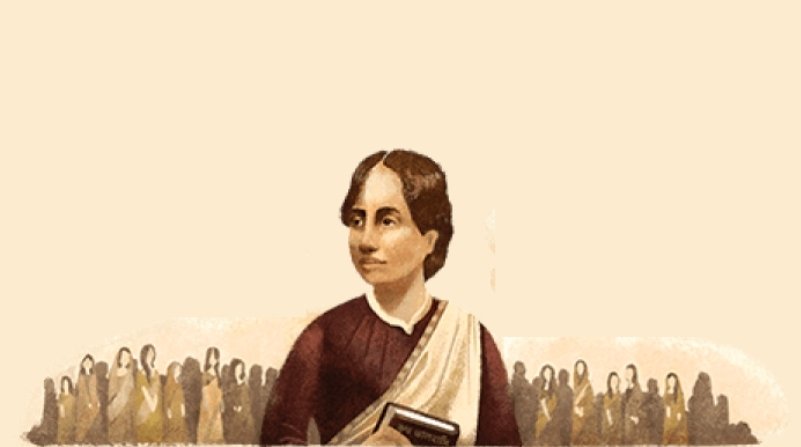Just as I logged in to the Google browser page, today’s doodle reminded me of a strong influential woman: Kamini Roy. Today, on her 155th birth anniversary, it is important for all of us to know who she was and what her contribution was in shaping the modern-day feminism. Born in Basanda Village of Bakerkunj district of erstwhile Bengal Presidency, now Bangladesh on October 12, 1864, Kamini Roy was the first woman to graduate with honours in British India. Her contribution to social reformation and women empowerment is beyond fascination.
Although she came from a progressive family, it was not easy for her to continue her education. Roy took the entrance exam to Bethune College in 1880 and cleared it. Despite having many obstacles, she graduated from Bethune College in 1886 and became the first Indian woman honours graduate with a bachelor’s degree in Sanskrit. She was a strong woman who supported women empowerment and feminism. While in college, she took an active part in the Ilbert Bill agitation. After graduation, she became a teacher at Bethune and published her first book of poems named “Alo O Chhaya“, in 1889. By forming organizations to champion causes she believed in, she helped advance feminism on the Indian subcontinent. She then embarked on her activism for feminism and raised her voice many times against several injustices.
One of her quotes that finds absolute relevance even in today’s society is:
“The male desire to rule is the primary, if not the only, stumbling block to women’s enlightenment… They are extremely suspicious of women’s emancipation. Why? The same old fear—‘Lest they become like us’.”
The way she has expressed “lest they become like us” shows that her thought process was way ahead of time and that laid the foundation of struggle for equality. In 1921, she joined Naari Samaj and raised her voice against atrocities on women, and later she became a member of the Female labour Investigation Committee.
Another important quote from her is, “Why should a woman be confined to the home and denied her rightful place in society?”. This was completely unimaginable in that era when even thinking of the progression of women used to be a grave offense. Roy, however, broke many stereotypes with her profound thoughts and strong voice. One such step was to get married at the age of 30, which was considered inappropriate back then.
Apart from being a feminist leader she was a great poet, and some of her notable contribution to Bengali literature are “Pundorik”, “Dwip O Dhup”, “Jibon Pathey”, “Pauraniki”, “Gunjan”, “Nirmalya”, “Mallya O Nirmalya”, “Ashoka Sangeet”, and “Alo O Chaya”. Roy was president of Bangla Literature Summit (1930) and vice-president of Bangiya Sahitya Parishad in 1932-33. She always aggressively emphasized on women’s education. She believed that it was indispensable for girls and women to be educated to understand their position in society. They must realize that their contribution should not only remain limited to household, but the whole society must benefit from the same. They should be able to voice their opinions, and if required, question and challenge the societal rules. She thoroughly encouraged girls and women to pen down their thoughts.
Roy left for the heavenly abode on September 27, 1933; however, she is still a major inspiration to millions of men and women in India. She ignited the hope which we are still carrying with us. I will conclude with another quote from her, while I believe will resonate with generations to come:
“No one can make you feel inferior without your consent.”

